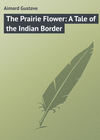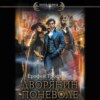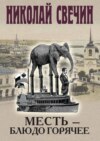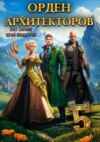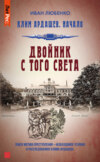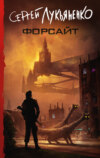Читать книгу: «The Prairie Flower: A Tale of the Indian Border», страница 4
CHAPTER IV
THE GRIZZLY BEAR
All was calm in the prairie; not a sound disturbed the silence of the desert. On the sudden appearance of the Indian, whatever the emotion Bright-eye might feel, it was impossible for Natah Otann to perceive anything: the hunter's face remained calm, and not a muscle moved.
"Ah!" he said, "the sachem of the Piékanns is welcome: does he come as a friend or an enemy?"
"Natah Otann comes to sit by the fire of the palefaces, and smoke the calumet with them," the chief replied, casting a searching glance around him.
"Good: if the chief will wait a moment, I will light the fire."
"Bright-eye can light it, the chief will wait: he has come to talk with the palefaces, and the conversation will be long."
The Canadian looked fixedly at the Redskin; but the Indian was impassive like himself, and it was impossible to read anything on his features. The hunter collected a few handfuls of dry wood, struck a light, and soon a bright flame sprung up, and illumined the mount. The Indian drew near the fire, took his calumet from his girdle, and began grimly smoking. Bright-eye not wishing to remain in any way behindhand, imitated his every movement with perfectly feigned indifference, and the two men sat for several moments puffing clouds of smoke at each other. Natah Otann at length broke the silence.
"The pale hunter is a warrior," he said; "why does he try to hide himself like the water rat?"
Bright-eye did not consider it advisable to reply to this insinuation, and continued smoking philosophically, while casting a side-glance at his questioner.
"The Blackfeet have the eye of the eagle," Natah Otann continued, "their piercing eyes see all that happens on the prairie."
The Canadian made a sign of assent, but did not yet reply; the chief continued: —
"Natah Otann has seen the trail of his friends the palefaces, his heart quivered with pleasure in his breast, and he has come to meet them."
Bright-eye slowly removed his pipe from his lips, and turning towards the Indian, examined him carefully for an instant, and then answered —
"I repeat to my brother that he is welcome: I know that he is a great chief, and am happy to see him."
"Wah!" the Indian said, with a cunning smile: "is my brother so satisfied as he says at my presence?"
"Why not, chief?"
"My brother is angry still that the Blackfeet fastened him to the stake of torture."
The Canadian shrugged his shoulders contemptuously, and coldly answered: —
"Nonsense, chief! why do you fancy I am angry with you or your nation? war is war; I have no reproaches to make to you. You wished to kill me, I escaped; so we are quits."
"Good: does my brother speak the truth? has he really forgotten?" the chief asked with some vivacity.
"Why not?" the Canadian answered cautiously. "I have not a forked tongue, the words my mouth utters come from my heart: I have not forgotten the treatment you made me undergo, I should lie if I said so: but I have forgiven it."
"Ochi! my brother is a greatheart: he is generous."
"No: I am merely a man who knows Indian customs, that is all: you did no more and no less than all the Redskins do under similar circumstances: I cannot be angry with you for having acted according to your nature."
There was a silence; the two men went on smoking. The Indian was the first to interrupt it.
"Then my brother is a friend," he said.
"And you?" the hunter asked, answering one question by another.
The chief rose with a gesture full of majesty, and threw back the folds of his buffalo robe.
"Would an enemy come like this?" he asked, in a gentle voice.
The Canadian could not repress a movement of surprise; the Blackfoot was unarmed, his girdle was empty: he had not even his scalping knife, – that weapon from which the Indians part so unwillingly. Bright-eye offered him his hand.
"Shake hands, chief," he said to him. "You are a man of heart: now speak, I am listening to you: and, in the first place, will you have a draught of firewater?"
"The firewater is an evil counsellor," the chief replied, with a smile; "it makes the Indians mad: Natah Otann does not drink it."
"Come, come, I see that I was mistaken with regard to you, chief; that pleases me: speak, my ears are open."
"What I have to say to Bright-eye other ears must not listen to."
"My friends are in a deep sleep, you can speak without fear; and even if they were awake, as you know, they do not understand your language."
The Indian shook his head.
"Glass-eye knows everything," he replied, "the Grizzly Bear will not speak before him."
"As you please, chief: still, I would remark that I have nothing to say to you: you can speak, therefore, or be silent at your ease."
Natah Otann seemed to hesitate for an instant, and then continued: —
"Bright-eye will follow his friend to the river bank, and there listen to the words of the Blackfoot chief."
"Hum!" the hunter said, "and who will watch over my companions during my absence? No, no," he added, "I cannot do that, chief. The Redskins have the cunning of the opossum: while I am near the river, my friends may be surprised. Who will respond for their safety?"
The Indian rose.
"The word of a chief," he said, in a proud voice, and with a gesture full of majesty.
The Canadian looked at him attentively. "Listen, Redskin," he said to him, "I do not doubt your honour, so do not take in ill part what I am going to say to you."
"I listen to my brother," the Indian answered.
"I must watch over my companions. Since you insist on speaking to me in secret, I consent to follow you, but on one condition, that I do not lay aside my weapons; in that way, should one of those things happen, which are too common in the prairie, and which no human foresight can prevent, I shall be able to face the danger and sell my life dearly: if what I propose suits you, I am ready to follow you; if not, not."
"Good," the Indian said, with a smile, "my pale brother is right, a true hunter never quits his weapons. Bright-eye may follow his friend."
"Very well, then," the Canadian said, resolutely, as he threw his rifle on his shoulder.
Natah Otann began descending the hill. While gliding noiselessly through the shrubs and thickets, the Canadian walked literally in his footsteps; but though pretending the most perfect security, he did not omit carefully examining the vicinity, and lending an ear to the slightest sound, but all was calm and silent in the desert, and after some ten minutes' walk the two men reached the riverside.
The Mecha-Chebe rolled its waters majestically in a bed of golden sand, while at times a few vague shadows appeared on the bank: they were wild beasts coming to drink in the river. Two leagues from them, at the top of the hill, sparkled the last flames of an expiring fire, which appeared at intervals between the branches. Natah Otann stopped at the extremity of a species of small promontory, the point of which advanced some distance into the water. This spot was entirely free from vegetation: the eye could survey the prairie for a great distance, and detect the slightest movement in the desert.
"Does this place suit the hunter?" the chief asked.
"Capitally," Bright-eye replied, resting the butt of his rifle on the ground, and crossing his hands over the muzzle: "I am ready to hear the communication my brother wishes to make me."
The Indian walked up and down the sand with folded arms and drooping head, like a man who is reflecting deeply. The hunter followed him with his glance, waiting calmly, till he thought proper to offer an explanation. It was easy to see that Natah Otann was ripening in his brain one of those bold projects such as Indians frequently imagine, but knew not how to enter upon it. The hunter resolved to put a stop to this state of things.
"Come," he said, "my brother has made me leave my camp; he invited me to follow him; I consented to do so: now that, according to his desire, we are free from human ears, will he not speak, so that I may return to my companions?"
The Indian stopped before him.
"My brother will remain," he said; "the hour is come for an explanation between us. My brother loves Glass-eye?"
The hunter regarded his querist craftily.
"What good of that question?" he asked: "it must be a matter of indifference to the chief whether I love or not the man he pleases to call Glass-eye."
"A chief never loses his time in vain discourses," the Indian said, peremptorily; "the words his lips utter are always simple, and go straight to the point; let my brother then answer as clearly as I interrogate him."
"I see no great inconvenience in doing so. Yes, I love Glass-eye; I love him not only because he saved my life, but because he is one of the most honourable men I ever met."
"Good! for what purpose does Glass-eye traverse the prairie? My brother doubtlessly knows."
"My faith, no! I confess to you, chief, my ignorance on that head is complete. Still, I fancy that, wearied with the life of cities, he has come here with no other object than to calm his soul by the sublime aspect of nature, and the grand melodies of the desert."
The Indian shook his head; the hunter's metaphysical ideas and poetic phrases were so much Hebrew to him, and he did not understand them.
"Natah Otann," he said, "is a chief, he has not a forked tongue; the words he utters are as clear as the blood in his veins. Why does not the hunter speak his language to him?"
"I answer your questions, chief, and that is all. Do you fancy that I would go out of my way to interrogate my friend as to his intentions? They do not concern me; I have no right to seek in a man's heart for the motive of his actions."
"Good! my brother speaks well; his head is grey, and his experience long."
"That is possible, chief; at any rate you and I are not on such friendly terms that we should exchange our thoughts without some restriction, I fancy; you have kept me here for an hour without saying anything, so it is better for us to separate."
"Not yet."
"Why not? Do you imagine I am like you, and that instead of sleeping o' nights as an honest Christian should do, I amuse myself with rushing about the prairie like a jaguar in search of prey?"
The Indian began laughing.
"Wah!" he said, "my brother is very clever; nothing escapes him."
"By Jingo! there is no great cleverness in guessing what you are doing here."
"Good! then let my brother listen."
"I will do so, but on the condition that you lay aside once for all those Indian circumlocutions in which you so adroitly conceal your real thoughts."
"My brother will open his ears, the words of his friend will reach his heart."
"Come, make an end of it."
"As my brother loves Glass-eye, he will tell him from Natah Otann that a great danger threatens him."
"Ah!" the Canadian said, casting a suspicious glance at the other, "and what may the danger be?"
"I cannot explain further."
"Very good," Bright-eye remarked, with a grin, "the information is valuable, though not very explicit; and pray what must we do to escape the great danger that menaces us?"
"My brother will wake his friend, they will mount their horses, and retire at full speed, not stopping till they have crossed the river."
"Hum! and when we have done that, we shall have nought more to fear?"
"Nothing."
"Only think of that," the hunter said, ironically; "and when ought we to start?"
"At once."
"Better still." Bright-eye walked a few paces thoughtfully; then he returned, and stood before the chief, whose eyes sparkled in the gloom like those of a tiger cat, and who followed his every movement.
"Then," he said, "you cannot reveal to me the reason that forces us to depart?"
"No!"
"It is equally impossible, I suppose, for you to tell me of the nature of the danger that menaces us?" he went on.
"Yes."
"Is that your last word?"
The Indian bowed his head in affirmation.
"Very good, as it is so," Bright-eye said all at once, striking the ground with the butt of his rifle, "I will tell it you."
"You?"
"Yes, listen to me carefully; it will not be long, and will interest you I hope."
The chief smiled ironically.
"My ears are open," he said.
"All the better, for I shall fill them with news which, perhaps, will not please you."
"I listen," the impassive Indian repeated.
"As you said to me a moment back – and the confidence on your part was useless, for I have known you so long on the prairie – the Redskins have the eyes of an eagle, and they are birds of prey, whom nothing escapes."
"Go on."
"Here I am; your scouts have discovered, as was not difficult, the trail of an emigrant family; that trail you have been following a long time so as not to miss your blow; supposing that the moment had arrived to deal it, you have assembled Comanches, Sioux, and Blackfeet, all demons of the same breed, in order this very night to attack people whom you have been watching for so many days, and whose riches you covet because you suppose them so great – eh?"
Natah Otann's face revealed no emotion. He remained calm, although internally restless and furious at having his thoughts so well guessed.
"There is truth in what the hunter says," he replied, coldly.
"It is all true," Bright-eye exclaimed.
"Perhaps; but I do not see in it for what reason I should have come here to warn my Paleface brother."
"Ah, you do not see that; very well. I will explain it to you. You came to seek me, because you are perfectly well aware that Glass-eye, as you call him, is not the man to allow the crime you meditate to be committed with impunity in his presence."
The Blackfoot shrugged his shoulders. "Can a warrior, however brave he may be, hold his ground against four hundred?" he said.
"Certainly not," Bright-eye went on; "but he can control them by his presence, and employ his ascendency over them to compel them to give up their prospects; and that is what Glass-eye will undoubtedly do, for reasons of which I am ignorant, for all of you have for him an incomprehensible respect and veneration, and as you fear lest you may see him come among you at the first shot fired, terrible as the destroying angel, you seek to remove him by a pretext, plausible with anyone else, but which will produce on him no other effect than making him engage in the affair. Come, is that really all? have I completely unmasked you? Reply."
"My brother knows all; I repeat, his wisdom is great."
"Now, I presume, you have nothing to add? Very well, good night."
"A moment."
"What more?"
"You must."
"Very well; but make haste."
"My brother has spoken in his own cause, but not in that of Glass-eye; let him wake his friend, and impart our conversation to him; mayhap he is mistaken."
"I do not believe it, chief," the hunter answered, with a shake of his head.
"That is possible," the Indian persisted; "but let my brother do as I have asked him."
"You lay great stress on it, chief!"
"Great."
"I do not wish to vex you about such a trifle. Well! you will soon allow that I was right."
"Possibly; I will await my brother's reply for half an hour."
"Very good; but where shall I bring it to you?"
"Nowhere!" the Indian exclaimed, sharply. "If I am right, my brother will imitate the cry of the magpie twice; if I am mistaken, it will be that of the owl."
"Very good, that's agreed; you shall soon hear, chief."
The Indian bowed gracefully.
"May the Wacondah be with my brother!" he said.
After this courteous salutation, the two men parted. The Canadian carelessly threw his rifle on his shoulder, and stalked back to his camp, while the Indian followed him with his glance, apparently remaining insensible; but as soon as the hunter had disappeared, the chief lay down in the sand, glided along in the shade like a serpent, and in his turn disappeared amid the bushes, following the direction taken by Bright-eye, though at a considerable distance.
The latter did not fancy himself followed; he therefore paid no attention to what went on around him, and regained his camp without noticing anything of an extraordinary nature. Had not the Canadian been preoccupied, and his old experience lulled to sleep for the moment, he would have certainly perceived, with that penetration which distinguished him, that the desert was not in its usual state of tranquillity: he would have felt unusual tremors in the leaves, and possibly have seen eyes flashing in the shade of the tall grass. He soon reached the camp where the Count and Ivon were sleeping profoundly. Bright-eye hesitated a few seconds ere awakening the young man whose sleep was so peaceful; still, reflecting that the least imprudence might entail terrible consequences, whose result it was impossible to calculate, he bent over him, and gently touched his shoulder. Though the touch was so slight, it sufficed to wake the Count; he opened his eyes, sat up, and looking at the old hunter —
"Is there anything fresh, Bright-eye?" he asked.
"Yes, Sir Count," the Canadian replied, seriously.
"Oh, oh, how gloomy you are, my good fellow," the young man said, with a laugh. "What's the matter then?"
"Nothing, yet; but we may soon have a row with the Redskins."
"All the better, for that will warm us, as it is horribly cold," he replied, shivering. "But how do you know the fact?"
"During your sleep I received a visitor."
"Ah?"
"Yes."
"And who was the person who selected such an important moment to pay you a visit?"
"The sachem of the Blackfeet."
"Natah Otann?"
"Himself."
"Upon my word, he must be a somnambulist, to amuse himself by walking about the desert at night."
"He does not walk, he watches."
"Oh, I am in a bother; so keep me no longer in suspense; tell me what passed between you. Natah Otann is not the man to put himself out of the way without strong reasons, and I am burning to know them."
"You shall judge."
Without any further preface, the hunter described in its fullest details the conversation he had with the chief.
"By Jove! that's serious," the Count said when Bright-eye had ended his story. "This Natah Otann is a gloomy scoundrel, whose plans you fully penetrated, and you behaved splendidly in answering him so categorically. For what has this villain taken me? Does he fancy, I wonder, that I shall act as his accomplice? Let him dare to attack those poor devils of emigrants down there, and by the saints, I swear to you, Bright-eye, that blood will be shed between us, if you help me."
"Can you doubt it?"
"No, my friend, I thank you; with you and my coward of an Ivon, I shall manage to put them to flight."
"Is my lord calling me?" the Breton asked, raising his head.
"No, no, Ivon, my good fellow; I only say that we shall soon have some fighting."
The Breton emitted a sigh, and muttered, as he lay down again, —
"Ah! if I had as much courage as I possess goodwill; but alas! as you know, I am a wonderful coward, and I shall prove more harm to you than good."
"You will do all you can, my friend, and that will be sufficient."
Ivon sighed in reply. Bright-eye had listened laughingly to this colloquy. The Breton still possessed the privilege of astonishing him, for he did not at all comprehend his singular organization. The Count turned towards him.
"So it is settled?" he said.
"Settled," the hunter answered.
"Then give the signal; my friend."
"The owl, I suppose?"
"By Jove!" the Count said.
Bright-eye raised his fingers to his mouth, and, as had been agreed with Natah Otann, imitated twice the cry of the owl, with rare perfection. Hardly had the echo of the last cry died away, than a great rumour was heard in the bushes, and, before the three men had time to put themselves in a posture of defence, some twenty Indians rushed upon them, disarmed them in a twinkling, and reduced them to a state of utter defencelessness. The Count shrugged his shoulders, leant against a tree, and, thrusting his glass in his eye, said, —
"This is very funny."
"Well, I can't see the point of the joke," muttered Ivon, in a grand aside.
Among the Indians, whom it was easy to recognize as Blackfeet, was Natah Otann! After removing the weapons of the white men, so that they could not attempt a surprise this time, he walked towards the hunter.
"I warned Bright-eye," he said.
The hunter smiled contemptuously.
"You warned us after the fashion of Redskins," he replied.
"What does my brother mean?"
"I mean that you warned us of a danger that threatened us, and not that you intended treachery."
"It is the same thing," the Indian replied, with utter calmness.
"Bright-eye, my friend, do not argue with those scoundrels," the Count said.
And turning haughtily to the chief, —
"Come! what do you want of us?" he asked.
Since his arrival on the prairie, and through his constant contact with the Indians the Count had almost unconsciously learned their language, which he spoke rather fluently.
"We do not wish to do you any hurt; we only intend to prevent your interference in our affairs," Natah Otann said respectfully; "we should be very sorry to have recourse to violent measures."
The young man burst into a laugh.
"You are humbugs! I can manage to escape, in spite of you."
"Let my brother try it."
"When the moment arrives; as for the present, it is not worth the trouble!"
While speaking in this light tone, the young man took his case from his pocket, chose a cigar, and, pulling out a lucifer match, stooped down and rubbed it on a stone. The Indians, considerably puzzled by his movements, followed them anxiously; but suddenly they uttered a yell of terror, and fell back several paces. The match had caught fire with the friction; a delicious blue flame sported about its extremity. The Count carelessly twisted the slight morsel of wood between his fingers, while waiting till all the sulphur was consumed. He did not notice the terror of the Indians.
The latter, with a movement as swift as thought, stooped down, and each picking up the first piece of wood he found at his feet, all began rubbing it against the stones. The Count, in amazement, looked at them, not yet understanding what they were about. Natah Otann seem to hesitate for a moment; a smile of strange meaning played, rapidly as lightning, over his gloomy features; but reassuming almost immediately his cold impassiveness, he took a step forward, and respectfully bowing before the Count —
"My father commands the fire of the sun," he said, with all the appearance of a mysterious terror, while pointing to the match.
The young man smiled; he had guessed the secret.
"Which of you," he said haughtily, "would dare to contend with me?"
The Indians regarded each other with amazement. These men, so intrepid and accustomed to brave the greatest dangers, were vanquished by the incomprehensible power their prisoner possessed. As, while talking to the chief, the Count had not watched his match, it had gone out before he could use it, and he threw it away. The Indians rushed upon it, to assure themselves that the flame was real. Without appearing to attach any importance to this action, the Count drew a second match from his box, and renewed his experiment. His triumph was complete; the Redskins, in their terror, fell at his feet, imploring him to pardon them. Henceforth he might dare anything. These primitive men, terrified by the two miracles he had performed, regarded him as a superior being to themselves, and were completely mastered by him. While Bright-eye laughed in his sleeve at the Indians' simplicity, the young man cleverly employed his triumph.
"You see what I can do," he said.
"We see it," Natah Otann made answer.
"When do you intend to attack the emigrants?"
"When the moon has set, the warriors of the tribe will assault their camp."
"And you?"
"Will guard our brother."
"So you now fancy that is possible," the Count said, haughtily.
The Redskins shuddered at the flash of his glance.
"Our brother will pardon us," the chief replied, submissively; "we only knew him imperfectly."
"And now?"
"Now we know that he is our master, let him command, and we will obey."
"Take care!" he said, in a tone which made them shudder, "for I am about to put your obedience to a rude trial."
"Our ears are open to receive our brother's words."
"Draw nearer."
The Blackfeet took a few hesitating steps in advance, for they were not yet completely reassured.
"And now listen to me attentively," he said, "and when you have received my orders, take care to execute them thoroughly."

